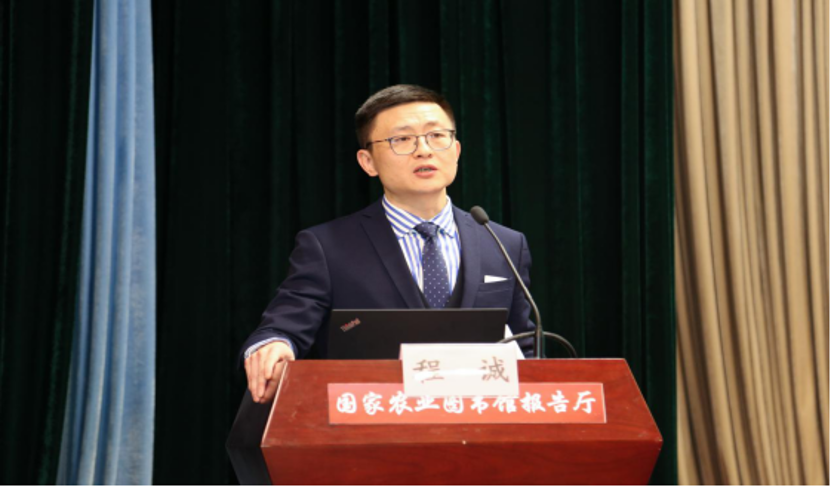Dr. Cheng Cheng Discusses AGRA2030 Strategy and China in the Context of the African Agricultural Green Revolution Alliance
The Fourth International Agricultural Research Conference, held in 2020 as the conclusion of the "13th Five-Year Plan" and the beginning of the "14th Five-Year Plan," addressed the challenges posed by the complex international situation and the impact of the COVID-19 pandemic. The conference focused on the theme of "International Organizations" and invited the Food and Agriculture Organization (FAO), the International Fund for Agricultural Development (IFAD), the World Food Programme (WFP), and the Alliance for a Green Revolution in Africa (AGRA) to exchange and share their work plans in the field of international agricultural development and South-South agricultural cooperation for the next five years. Dr. Cheng Cheng, Director of the China Project of the Alliance for a Green Revolution in Africa (AGRA), presented on the topic of "AGRA 2030 Strategy and China," introducing AGRA's basic development, the 2030 strategy, and the future prospects of cooperation between China and AGRA.
Dr. Cheng explained that AGRA is an international organization rooted in grassroots efforts to help small farmers increase productivity and improve income levels. Its working principles include inclusiveness (inclusive of gender and marginalized social groups), environmental sustainability, adaptability (adaptation to external shocks and long-term climate change), economic viability, and shared responsibility. AGRA has established offices in eleven member countries (out of fourteen) with over two hundred employees from more than twenty countries. The organization has targeted various issues facing agricultural development in Africa since its inception, providing direct support to over nine million smallholder farmers through initiatives such as crop breeding, fertilizer use, small-scale mechanization, and microfinance. AGRA is currently working to facilitate inclusive agricultural transformation for 20 million farmers in 11 African countries by 2021, aiming to increase income and improve food security.
Subsequently, Dr. Cheng outlined the basic content of the AGRA 2030 strategy, also known as the "Inclusive Agricultural Transformation Strategy." The core of the strategy involves formulating differentiated plans based on country differences, investing strategically in different systemic push points in each country, and achieving inclusive transformation of African agriculture through close collaboration with the private sector and development partners. The strategy focuses on achieving significant development benefits, particularly in gender equality, nutrition enhancement, and agricultural resilience. Dr. Cheng emphasized the five major development goals of the 2030 strategy: expanding support for small farmers; narrowing the production gap in target crops through innovation and digital solutions; promoting gender equality reduce the gender productivity gap among female farmers by 30% -50%,;benefiting 100,000 youth through entrepreneurship and job creation; and attracting $6 billion in development financing and $2 billion in private sector investment through flagship projects.
Finally, Dr. Cheng highlighted the crucial role of China in the AGRA 2030 strategy. China's horizontal experience sharing in agricultural transformation, increasing small farmer income, improving food security, rural development, and poverty alleviation is of significant importance to Africa. Additionally, China serves as an essential consumer market for African agricultural products. With the gradual formation and "14th Five-Year Plan", he believed that China can cooperate with Africa in the new development pattern of dual circulation and in the process of building a modern economic system by 2035. AGRA believed that the prosperous development of African agriculture will also bring benefits to China, and both sides will complement each other's development in the future.





